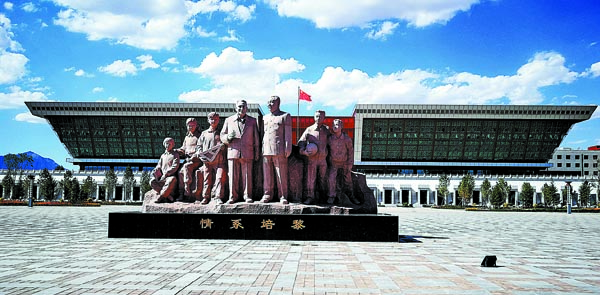Practically, a teaching revolution


In Shandan, the school has empowered poor children with valuable life skills and helped develop the county's industries and economy. Alley, who spent 10 years in the county during his six decades in China, is still remembered there and his influence continues to be appreciated.
Zhang says the school was highly integrated with real social demands. "It had no school uniform, so it founded a wool spinning workshop to make clothes. With a lack of food, it built a farm to plant wheat and vegetables. Then, it built factories producing leather, soap, glass, bricks and lime," he says.
He notes that the products were also liked by and sold to locals. Some old people still keep those products at home, saying: "They are not good-looking, but useful."
The school even built a boiler to generate power with steam. "At night, the school had electricity, so lots of residents would go to see it. For many, it was the first time in their lives that they had seen an electric lamp, and some refused to leave until dawn," Zhang adds.
Wang Zigang, former vice-principal of Shandan Bailie School, says: "The school's greatest value was that it brought modern industrial civilization to remote, underdeveloped northwestern areas, and cultivated talent for the construction of New China."




































